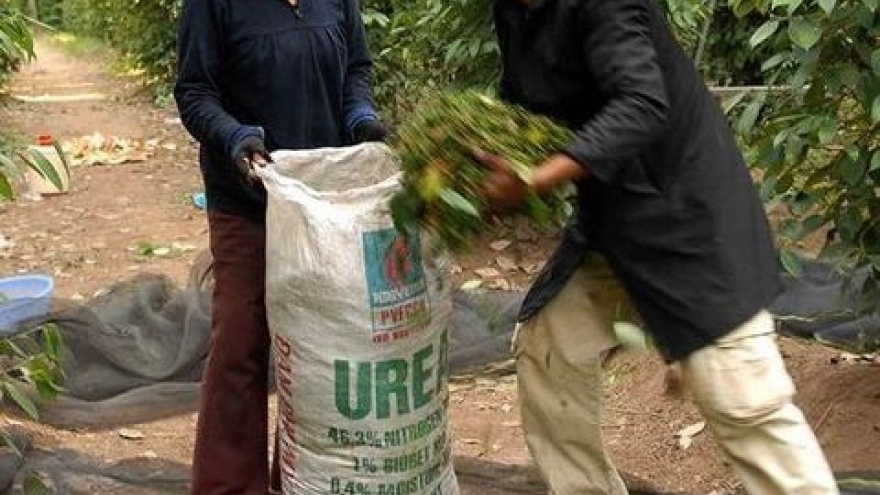Pepper export revenue loses spice due to oversupply
Vietnam's pepper shipments are forecast to reach around 101,000 tons for the first six months of 2017, up 13% on-year, but revenue is likely to fall 13%, according to Vietnam Pepper Association (VPA)'s chairman Do Ha Nam.
 |
“When supply exceeds demand, importers try to pull prices down. Vietnam, which provides some 60% of the global pepper output, will be heavily affected,” Nam told VnEconomy.
In the peak harvest season, farmers need to sell large volumes of pepper to cover expenses, causing prices to fall. Local farmers are stuck in a dilemma: the more pepper they sell, the sharper prices decline.
Domestic pepper prices have been falling throughout May and June, so the VPA is urging local farmers to hang on to their stocks and wait for prices to recover.
“If farmers can hold on for the next 1-2 months, prices will rise again,” Nam said.
The VPA has attributed falling prices to a 15% increase in pepper output in for this crop and the 20,000 tons of Cambodian pepper Vietnam has shipped in.
However, the greatest problem facing the sector is the expanding pepper plantations.
If the plantations continue to expand at their current rate, pepper prices will suffer as supply exceeds demand in the future.
To reduce these risks, the VPA has advised farmers to stop growing pepper in unsuitable soil and switch to alternative crops to provide an additional income.
Despite these warnings, farmers are continuing to expand their pepper plantations.
The reason is that a hectare of pepper can earn farmers at least VND240 million (US$10,600), while the same area of coffee will make them only VND100-150 million.
In addition to this, Vietnam’s pepper industry also faces food hygiene and safety concerns in foreign markets.
For example, in order to export 40,000 tons of pepper to the European Union, Vietnamese firms need to import 22,000 tons of clean pepper from Cambodia, Malaysia or Indonesia to process and export.
Similarly, in order to ship the product to Japan, local companies must import raw pepper to process first.
This is because in the past, Vietnamese pepper has been found to contain excessive chemical residue.
To address the issue, Vietnamese and foreign firms are working with farmers to clean up the plantations.
According to experts, organic pepper is slowly catching on, which may mean lower productivity but should ensure higher prices in a more stable market.



